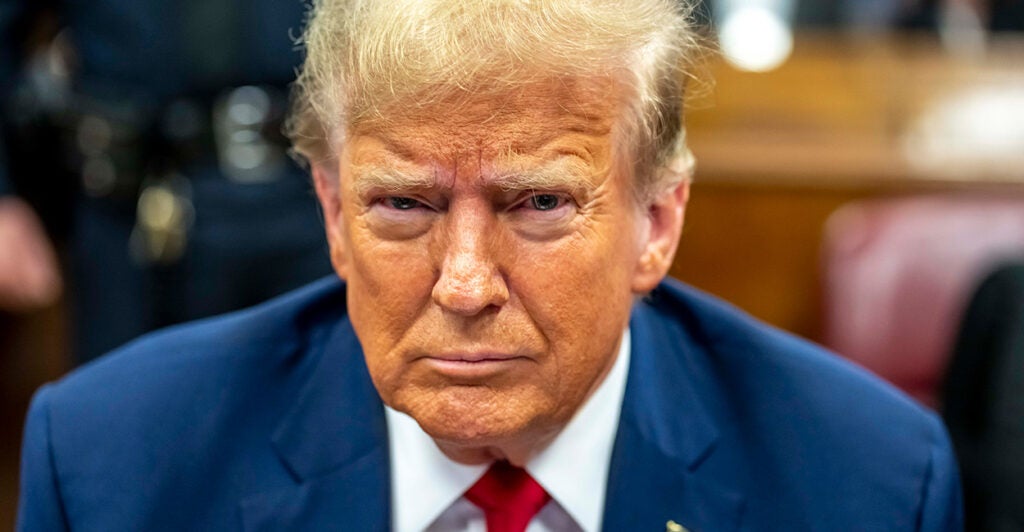The nine Supreme Court justices have a major question before them. Is a current or former president immune from prosecution?
Former President Donald Trump is facing prosecution for alleged efforts to overturn the results of the 2020 election. Trump argues that his actions as president are protected from prosecution under presidential immunity.
Trump lawyer John Sauer argued Thursday before the Supreme Court that unless a president is first impeached and convicted by the Senate, he is immune from prosecution, explains John Malcolm, senior legal fellow and vice president for the Institute for Constitutional Government at The Heritage Foundation. (Heritage founded The Daily Signal in 2014.)
Now, Malcolm says, the justices have to answer three questions in order to make a decision in the Trump case:
One, is there a blanket immunity for a president’s official actions because he was not impeached and convicted by the Senate?
Two, what is a private action and what is an official action?
And three, if the court rejects John Sauer’s, absolute immunity argument, will there be any other kind of immunity that might attach to an official action?
Malcolm joins this episode of “The Daily Signal Podcast” to discuss how the Supreme Court justices may rule based on the questions they asked Thursday during oral argument.
Listen to the podcast below:
